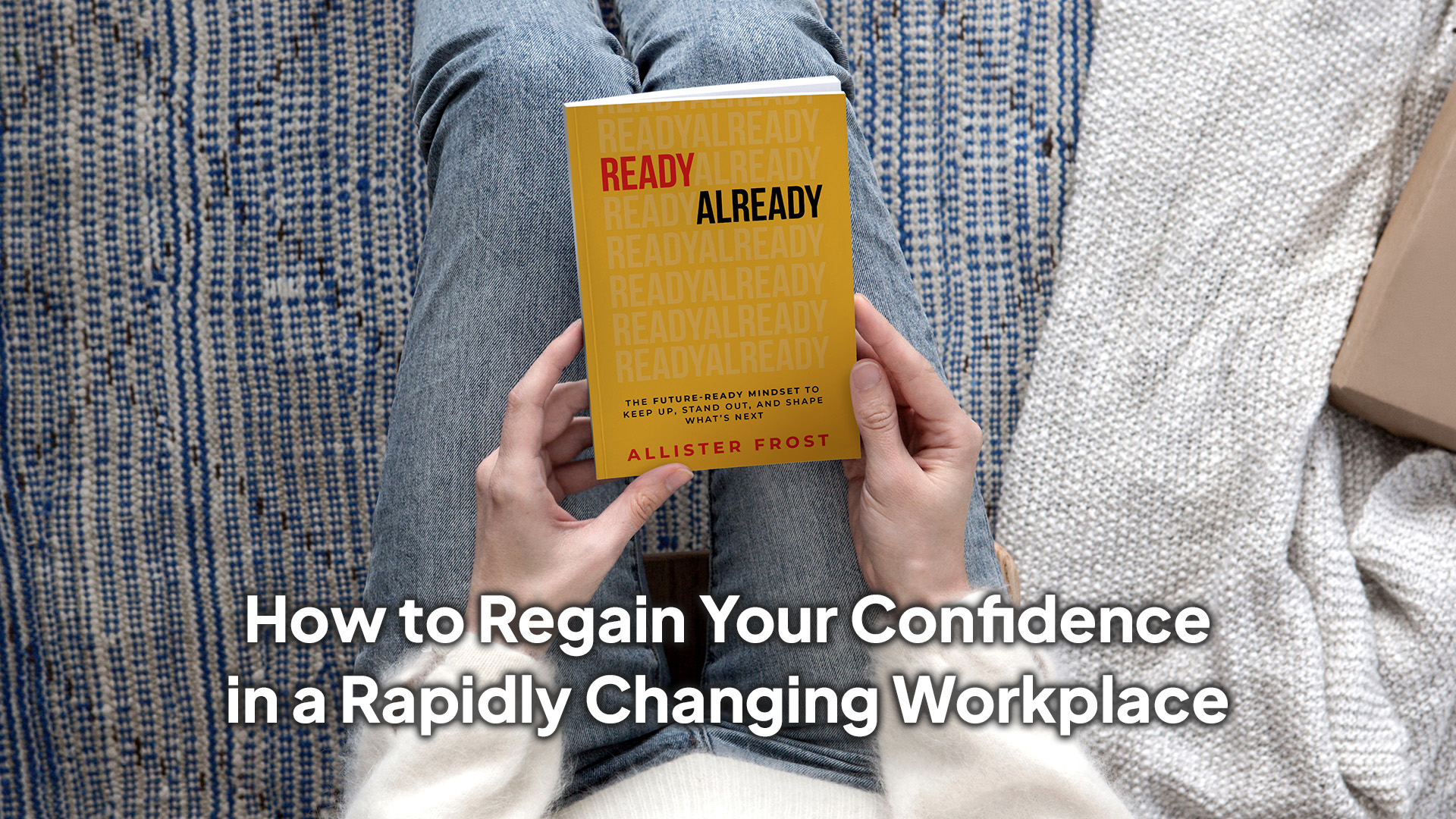I remember the moment it first hit me – that feeling as though things were starting to change faster than I could keep up with.
I was in a meeting at Microsoft: one of those long, back-to-back days where the agenda keeps shifting and no one seems to know what problem we’re solving anymore. A colleague shared a solution using a tool I’d never even heard of. Everyone else nodded along.
But me? I just sat there, quietly Googling it under the table (even I refused to use Bing), wondering if I’d ever be the one who knew things.
I wasn’t new to the business world. In fact, I was one of the more experienced people in the room. But the pace of change in the tech world left me feeling like the ground was moving beneath me. And that creeping doubt — “Am I up to this? Can I keep up?” — started to take hold.
Maybe you’ve felt something similar. You used to feel sharp, capable, even ahead of the curve. But now everything’s changing – systems, tools, process… – and even the daily conversations sound different. And slowly, but surely, what used to make you valuable doesn’t seem to carry the same weight. You haven’t stopped caring. You haven’t slacked off. But somehow, you’re on the back foot.
You’re not alone. And more importantly, you’re not broken.
This feeling is becoming more common, not less, because the world of work now spins fast. And it will only get faster.
The tools we use, the ways we communicate, the expectations we’re held to are all shifting. And unless we learn how to adapt with intention, it’s easy to get stuck. Not because you lack ability, but because the rules changed while you were still playing the old game.
Here’s the thing that I took far too long to realise: trying to “catch up” isn’t the answer.
The professionals who thrive aren’t the ones chasing every trend or working late into the night to stay on top of everything. Instead, they’re the ones who learn to let go of the idea that value comes from what they already know.
Because falling behind isn’t failure. It’s feedback.
It’s a sign that something needs to shift — not in your job description, but in your mind.
You don’t need a reinvention. You don’t need to start again. What you need is a new lens.
A way to make sense of change that doesn’t rely on your skills of prediction, which are guaranteed to be less than 100% reliable. Instead, I’ve found it helps to focus less on “What should I already know?” and more on “What would I love to learn next?”
Because maybe you’re not overwhelmed because there’s too much to do. Maybe you’re overwhelmed because you’re spending all your energy staying “today-ready,” and leaving no time to get future-ready.
There’s a subtle but powerful difference between the two. Staying “today ready” is about survival — reacting, managing, firefighting. But getting future-ready means stepping back, creating space, and asking better questions. It means thinking forward, every day, even when you feel like you’re drowning in today.
And confidence? It doesn’t come from knowing everything. It comes from trusting that you’ll figure things out. Confidence is the reward for curiosity, not a prerequisite for it.
Last year I spoke with a man who was just a few months away from retirement. After hearing me speak at his company conference, he told me, “I’ve decided I want to go out on a high. I want to make people sad when I leave, not glad to see the back of me!” That’s what happens when people stop bracing against change and start engaging with it.
You don’t need to wait for a restructure or a crisis or a performance review to start improving how you show up. You can begin with small, quiet questions. What part of your routine feels outdated? What are you doing out of well-worn habit, not future-facing intent? What’s one tool or trend you’ve been avoiding because you think being today-ready is more important than being future-ready?
Start there. Just start.
Not with a massive overhaul. Just with one step, driven by curiosity, not fear.
Because you’re not falling behind, anymore than I am. You’re being invited forward.
And if that idea resonates with you — if you’re ready to think differently about your value, your mindset, and how you handle change — I’ve written a book that might help.
It’s called ReadyAlready, and it brings together years of real-world experience, stories, and practical tools to help you build the kind of mindset that doesn’t just cope with change, but leads through it.
You can pick up your copy on Amazon here:
>> Ebook: https://amzn.to/45H1XJQ
>> Paperback: https://amzn.to/45UwtPb
(hardback and audiobook editions coming soon)

